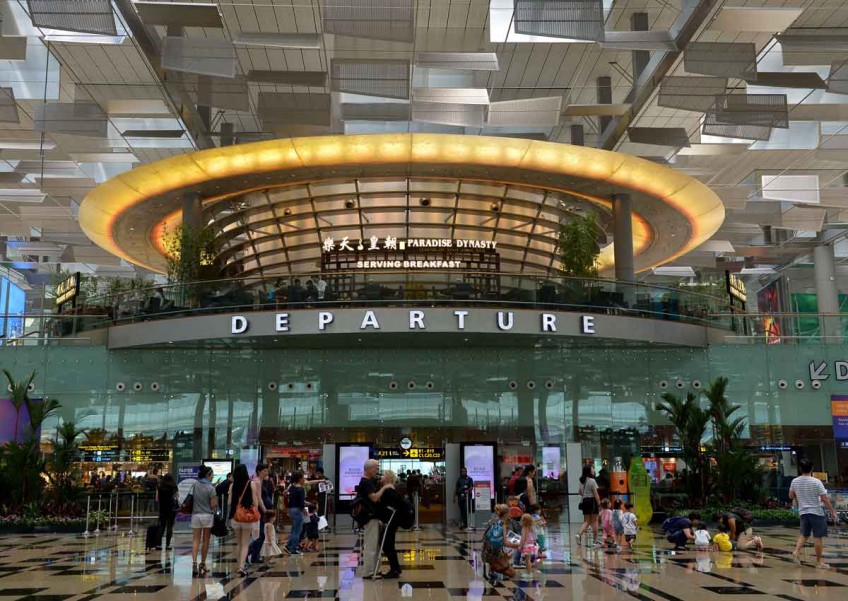Are you a responsible traveler?

This article first appeared on Go Away's Checklist: Are You A Responsible Traveler?
Find out if you have been making a positive impact on communities in places you've travelled to.
Interviewing Kathy Xu and finding out about her ecotourism project The Dorsal Effect got me thinking a lot more about responsible travel, inspiring me to reflect on my past travels - have I made any positive contributions to the economy, environment and society of the places I've visited? Did I seek to gain a better understanding of the local culture? Did I make a concerted effort to establish meaningful connections with the locals?
Truth be told, the answer to all three questions is no. That's too much work, I'd tell myself when I'm overseas. I'm on holiday, for crying out loud! I just want to have a good time.
But after reading more about responsible travel and what it encompasses, I learned that it actually isn't hard to adopt this practice at all. Here are a few things you can do the next time you travel:
1. Conserve water
While researching about water consumption in hotels, I came across these staggering pieces of information by Tourism Australia:
Lest we forget, water is a finite resource. What with rapid urbanisation, climate change, and global population growth, water resources are becoming increasingly scarce - a frightening reality in which many in developing countries are living. Just as we constantly remind ourselves to conserve water in our own homes, we must do the same everywhere else.
When you travel, this means turning off the tap when it's not in use (for instance, when you're soaping your body or shampooing your hair), taking a quick shower instead of a bath, informing the hotel staff there's no need to replace the towels, etc.
2. Reduce energy consumption
According to the US Energy Information Administration, International Transportation Energy Demand Determinants (ITEDD-2015), the transportation of people and goods makes up 25 per cent of all energy consumption in the world. While there is no doubt that flying is a carbon-intensive activity, there are many other ways to reduce our carbon footprint when we travel.
For starters, avoid flying business or first class - a 2013 study by the World Bank Group found that carbon emissions per passenger in first class are nine times as high as a passenger flying in economy class! On land, instead of flagging down a cab, take a local bus as much as possible or, even better, walk if the distance isn't too far.
Apart from transport, other ways to reduce energy consumption include removing your room key card from the slot (which automatically turns off electricity) before you leave your room, unplugging your mobile phone charger when it's not in use, and so on.
3. Be a mindful spender
Boost the local economy by spending your money in the right places that benefit the local community, be it choosing a tour operator that promotes sustainable tourism, buying locally made souvenirs from street vendors, eating dinner at a family-run restaurant, or opting for a homestay.
At the same time, be mindful of your purchases by asking yourself - and even the vendors - "How was this produced? Was this made from endangered species?"
4. Do not support animal entertainment
Animal circuses, elephant rides, feeding tiger cubs, taking photos with "domesticated" venomous snakes … these are just a few examples of the highly lucrative wildlife tourism, some of which even operating under the guise of conservation.
Rule of thumb: Wildlife animals belong in the wild; do not support any attractions that encourage the animals to behave in ways they would never do in their natural habitat.
Of course, there are many reputable wildlife sanctuaries and conservancies you can visit to observe animals in their natural habitat, but do some research about such organisations first to ensure you aren't inadvertently supporting animal cruelty.
5. Protect the environment
Ever heard of the saying, "Take only photographs, leave only footprints"?
In essence, it's about minimising your impact on the natural environment as much as possible, and this includes disposing of your trash in bins (if recycling bins are available, be sure to sort out your trash before disposing of them), saying no to plastic bags, keeping to designated trails when you hike or trek, etc.
6. Respect the local culture and customs
Personally, I feel certain cultural practices - the ones that inflict physical, mental and emotional harm and torture, such as genital mutilation, bullfighting, and the Yulin Dog Meat Festival - ought to stop. But that's a post for another day. Here, I'm talking about developing basic cultural awareness.
Before setting foot in someone else's country, do some research on the local dress codes and other traditions and practices. When you're there, engage in meaningful conversations with the local people so you can better understand their way of life - and they, yours. And remember, always ask for permission before taking photographs of them.
Looking at the checklist, it's really about having common sense, about thinking and acting consciously. This travel agency best sums up the definition of responsible travel: it is about "creating better places to live in and better places to visit. The order of that sentence is key. Creating benefits for our hosts comes first. Then, when our hosts are happy, we, the guests, will be too."
Go Away is a website with a strong focus on making travel and living meaningful without the need to spend a lot of money - it’s all about keeping it real here!